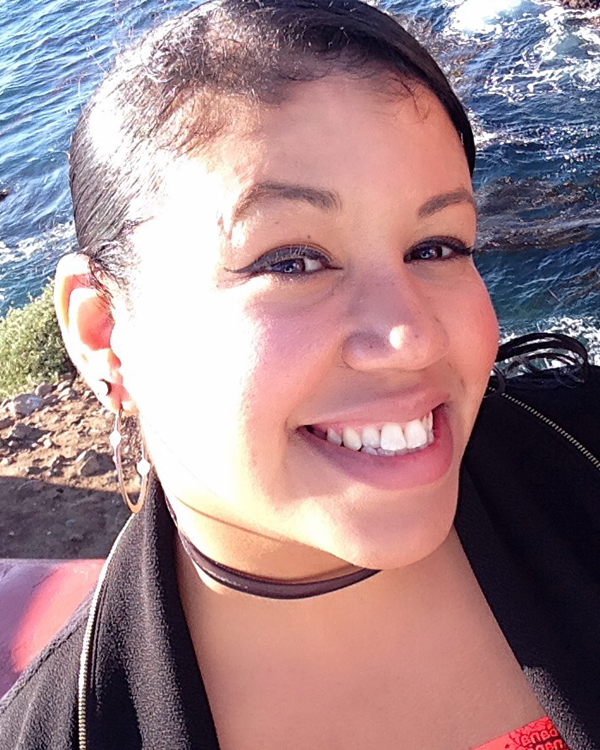WIA MENTORSHIP CASE STUDY
WIA Mentorship Case Study: Connie Nartonis Thompson / Jeannette Jimenez
Written By Jennifer Wolfe
A budding producer who got her start as a PA at Cartoon Network Studios, Jeannette Jimenez gains valuable experience and levels up her skills with the help of her “dream” mentorship.
Jeannette Jimenez knew she wanted to be a feature animation producer, but even after she was promoted to production coordinator from an entry-level job at Cartoon Network Studios as a production assistant on popular kids series Ben 10, she still didn’t know how to gain the knowledge and skills she needed to begin reaching her goal.
Browsing through the volunteer mentors on the WIA website, Jimenez’s first thought was, “Wow, this looks amazing!” She adds, “I personally have never been able to have a one-on-one with anyone of that caliber, to have someone mentor me at that kind of level. This seemed like the best opportunity for me to be able to try to get in there and ask all the questions I have about working in feature production. You know what I mean? There’s no venue for that kind of thing anywhere.”
Straddling the worlds of CG animation and stop-motion, WIA Mentor Connie Nartonis Thompson has a long and storied career in animation production. A former production manager at Walt Disney Animation Studios — where she counted Don Hahn as a mentor — she has worked at Illumination Entertainment, LAIKA, and Warner Animation Group, where she most recently filled a producer role. She also served as associate producer on Tim Burton’s Frankenweenie and Paramount Animation’s 2019 animated feature Wonder Park.
“Connie was my number one pick,” Jimenez reveals. “It was a dream. She’s a producer. She’s worked on movies I’ve admired. She’s worked with directors I’ve wanted to work with. She’s worked at almost every single studio that I’ve ever wanted to work in, and you can see from her resume that she started from the bottom and worked her way up. It just blew my mind.”
Nartonis Thompson credits a number of people with providing mentorship over the course of her career and wanted to pay that forward however she could. “There’s always an opportunity to hire folks just out of school or really early in their career as production assistants or production coordinators, and mentor them on the job,” she notes. “But I also wanted to reach out to people a little bit further afield and Women In Animation was a great opportunity for doing that. The WIA Mentorship Program is important because it allowed me to reach across different studios in our industry and share all the knowledge I’ve learned with another woman who’s coming up through the ranks.”
Fake it to Make it: Learning to Schedule & Budget
“She threw it on my corner,” Jimenez says of her first meeting with Nartonis Thompson. “She wanted to hear what I was looking for, what I was wanting to gain from this experience. I said, ‘I really want to move up in production. I’m currently a production coordinator. I’d like to be a production manager, or supervisor, and one day, eventually, the producer.’”
With more questions than answers, Jimenez wanted to learn how a feature production operated, from budgets and schedules to hiring crew. “Right now, I’m doing day-to-day with artists and board artists, overseas emails, and things of that nature, but I don’t really get to see budgets. I don’t get to mess with scheduling.”
Digging Deeper: Shadowing a Producer in Action
While Jimenez found the process of developing a production schedule and budget invaluable, she also wanted more insight into the day-to-day world of feature production. “At a certain point, she was like, ‘I really want to shadow someone,’ because she’s working in television animation and she really wants to make that transition to feature film animation, which is not a trivial undertaking,” Nartonis Thompson recalls.
Nartonis Thompson made arrangements for Jimenez to shadow the production supervisor for an animated feature. “I think it was super helpful for her to see how the sessions were run, what it felt like with the director, the producer in the room, and see how it was different from television, and how they were the same,” she says. “That experience can give her the confidence to really speak up in an interview, like, ‘I know the difference, and I know I can make that transition.’”
“Connie went above and beyond,” Jimenez says of the opportunity to shadow a working producer for a day. “I got to see the animation dailies, getting those approved, and talking to the overseas studio. I don’t know how I would have gotten this experience any other way. There’s no school for this. There’s no way anybody would ever have let me shadow them for an entire day and actually see a production in process.”
Following her participation in the WIA Mentorship Program, Jimenez was promoted to the role of production manager at Cartoon Network. “Connie really helped me build more confidence in my skills,” Jimenez shared. “She taught me not to be afraid to go after my dreams, because I have the knowledge and talent to be successful, and I did just that. An opportunity came up for a production manager position and I went for it. I had complete confidence in myself, and was able to speak about topics like budgets, scheduling, and so much more. Now, I’m a production manager on Craig of the Creek and I am loving it!”
Now, she has her sights set even higher: “I’m a huge believer in learning and mastering the current task at hand, and know that I’ll continue to grow as a production manager,” she says. “I don’t know exactly what’s next, but I look forward to seeing what the next chapter will bring — maybe a position on an upcoming feature animation production, which is my ultimate goal.”


